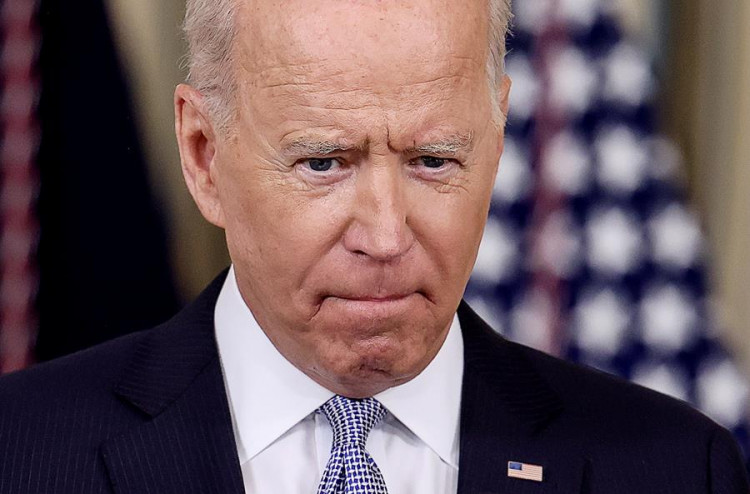U.S. President Joe Biden has taken a significant stance on the ongoing conflict between Israel and Hamas, stating that he would halt some shipments of American weapons to Israel if Prime Minister Benjamin Netanyahu orders a major invasion of the city of Rafah in Gaza. In an exclusive interview with CNN's Erin Burnett on "Erin Burnett OutFront," Biden acknowledged that American bombs have been used to kill civilians in Gaza, marking a stark recognition of the United States' role in the seven-month conflict.
"Civilians have been killed in Gaza as a consequence of those bombs and other ways in which they go after population centers," Biden said, referring to 2,000-pound bombs that he paused shipments of last week. "I made it clear that if they go into Rafah - they haven't gone in Rafah yet - if they go into Rafah, I'm not supplying the weapons that have been used historically to deal with Rafah, to deal with the cities - that deal with that problem."
The president's announcement comes amid extraordinary pressure, including from members of his own party, to limit shipments of arms due to the humanitarian crisis in Gaza. Biden's decision to condition American weaponry on Israel's actions represents a turning point in the conflict and a potential rift between himself and Netanyahu, with whom he spoke by phone on Monday.
Biden emphasized that while the US would continue to provide defensive weapons to Israel, including for its Iron Dome air defense system, other shipments would end should a major ground invasion of Rafah begin. "We're not walking away from Israel's security. We're walking away from Israel's ability to wage war in those areas," he said.
The president's comments have sparked fury among Jewish organizations, with the American Jewish Committee's CEO, Ted Deutch, expressing concern that Biden's decision could impair Israel's ability to prevent Hamas from launching repeated attacks. "President Biden should not take steps that could impair Israel's ability to prevent Hamas from attacking it again and again -- as its leaders have promised. The US knows that defeating Hamas is critical to Israel's long-term security and to defeating the global threat posed by the Iranian regime and its proxies," Deutch wrote on X (formerly Twitter).
The Republican Jewish Coalition (RJC) also criticized Biden's comments, contrasting his stance on Israel with his administration's efforts to relieve sanctions on Iran. "Biden's Middle East policy: relieving sanctions on the genocidal Iranian regime, while withholding critical military aid for the Jewish state as it fights a war of survival against terrorists," the RJC wrote on X, adding that "America and Israel need Donald Trump back in the White House."
Despite the backlash, Biden defended his position, warning Netanyahu about the risks of becoming bogged down in Gaza and drawing parallels to the American experience in Afghanistan and Iraq. "I said to Bibi, 'Don't make the same mistake we made in America. We wanted to get bin Laden. We'll help you get Sinwar,'" he said, referring to the Hamas leader in Gaza. "It made sense to get bin Laden; it made no sense to try and unify Afghanistan. It made no sense in my view to engage in thinking that in Iraq they had a nuclear weapon."
As the conflict in the Middle East continues to consume much of Biden's time, even as he works to promote his domestic record to American voters, the president's strong support for Israel has generated protests and anger, including on college campuses and at his events. While acknowledging the legitimate right to free speech and protest, Biden warned against demonstrations that veer into hate speech or antisemitism.
This story has been update with a crrection of the name of American Jewish Committee's CEO.





